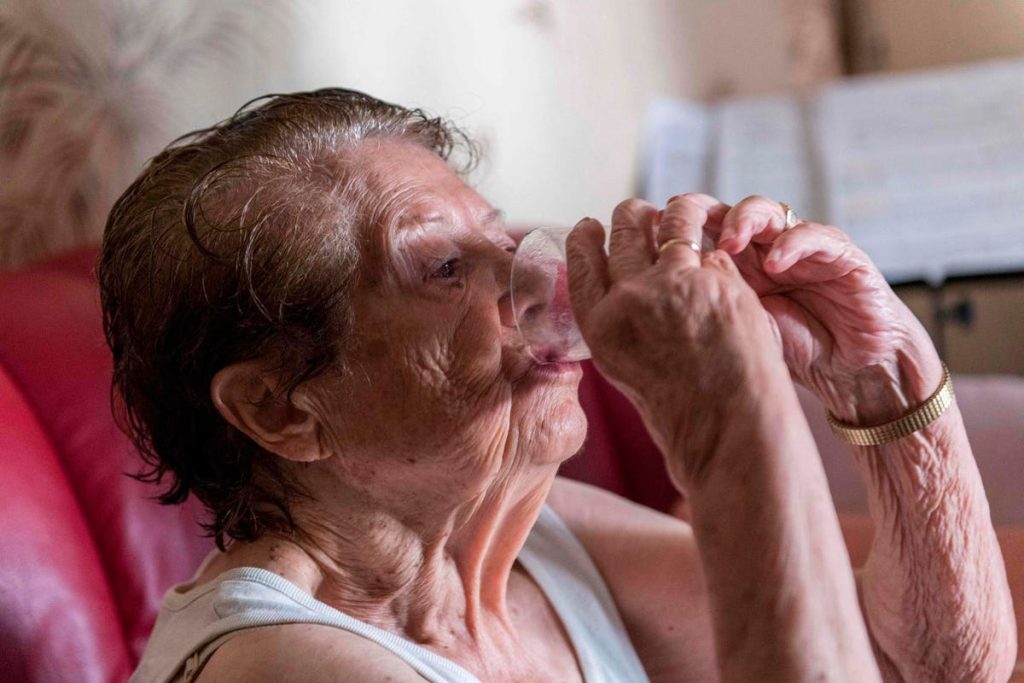This is the hottest summer ever, news reports tell us. We stay inside, we use air conditioning, we hydrate well. But some aging parents who live alone or with only part time help at home are at particular risk. It’s not just that older people can’t regulate their body temperature as well as younger people. It’s that they can get confused and not realize danger during bad hot spells.
Wandering
Some families we work with at AgingParents.com tell us that Mom or Dad tends to go outside and get lost once in awhile. We call it wandering in the healthcare field. Neighbors notice and bring them back home sometimes, if they’re lucky. Or someone calls the police about a lost elder found on the streets, not having any idea how they got there. The police get a call and return the aging person to the home. Sometimes the older person is not dressed for being outside. They’re in their pajamas or underwear. Simply put, they’re just confused and don’t remember what to do. Therein lies the danger.
The Risk of Extreme Heat
Mild cognitive impairment, memory loss, and dementia can all leave a person vulnerable to forgetting where they are or getting lost. During the hottest days and nights, a cognitively impaired elder who wanders alone outside can be putting their life at risk. Families who may have not been concerned about their aging parents’ occasional wandering need to be ever more concerned during these heat waves. If your loved one has wandered out of the house even once, it is time now to take extra protective measures. An aging person may not realize that she should not go outside right now. Unsupervised at home, she will just do what she thinks of doing at any moment, without considering warnings. If you warn her about the heat danger, she can easily forget and go out anyway. It’s not her fault. She just can’t keep track of that warning.
What To Do
A forgetful elder living alone is at highest risk. Their likely wandering and not realizing danger must be top of mind for families. One option is to get some help in the aging person’s home, even temporarily, for their protection. The cost is worth it if it saves a life. Alternatives are to bring the elder to a family member temporarily, having him live there for the time being, until the danger is reduced. It may be inconvenient. Your loved one may protest loudly, but it is not wise to let that stop you from making a change.
Even under normal circumstances, you will frequently see news reports of a missing elder who has dementia or other memory problems. They got in the car and forgot where to go, or where they left the car. They went outside to do something and got lost before they did it. Sometimes they are not found until it is too late.
Every public health official, governor and other authority in position to speak about the heat wave the U.S. is experiencing is telling the population they serve to avoid going outside. They urge people to go to a cooling center if they do not have A/C. Unfortunately, for a person with cognitive impairment, the public messaging does not have meaning. Their reasoning is impaired.
The Centers For Disease Control and Prevention describe the symptoms of heat related illness. Besides high body temperature, nausea, vomiting and headache, too much heat exposure can also cause confusion. In a person who is mildly confused to start with, imagine what an emergency is created with even more confusion. Extreme heat is more deadly than other kinds of disasters and is hardest on the oldest among us.
The Takeaways
- If you have an aging loved one who lives alone, check on them very frequently during extreme weather. They may not understand what is happening.
- If your aging parent has any memory problems, do not let them be unsupervised during these hottest days. They could forget what to do and go out in severe heat, not realizing the danger.
- Heat exhaustion and heat stroke are very serious. They can become a severe medical emergency for an aging person and may not be reversed in time to save them. Prevention and protection are key.
Read the full article here









